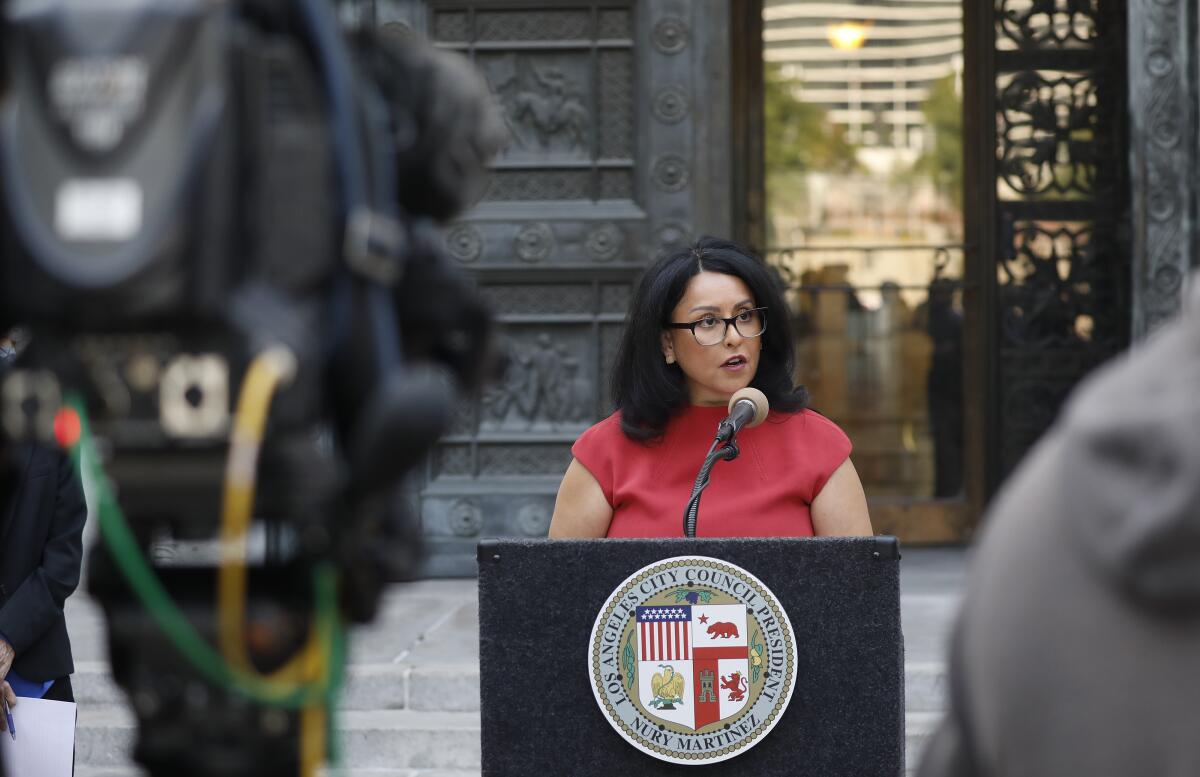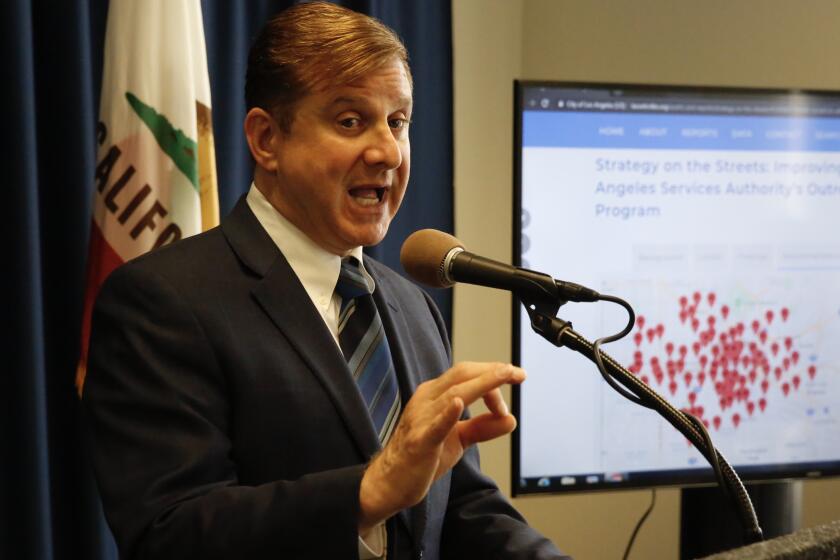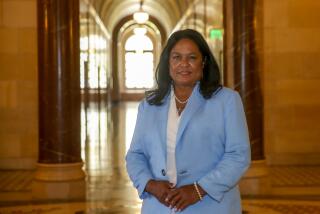Editorial: Shouldnât Council District 10 voters have a voice in choosing their representative?

Here we go again.
Los Angeles City Council President Nury Martinez is, for a second time, trying to rush through a vote to appoint a person to temporarily fill the seat vacated by Councilman Mark Ridley-Thomas, who has been indicted on federal criminal charges.
The shady backroom maneuvering in February to name termed-out former Councilman Herb Wesson to the seat created an embarrassing legal debacle that immediately called the legitimacy of the appointment into question. Since then, residents in the 10th Council District, which stretches from Koreatown to Leimert Park in South L.A., have been without consistent representation for months. Youâd think Martinez and her allies on the council would take a different, more transparent approach to the appointment this time. But no.
Last week, a judge ruled that Wesson cannot serve on the council pending an October trial over his eligibility for the seat. (Wesson served the maximum three terms on the City Council, and a group of Ridley-Thomas supporters sued, arguing that he cannot rejoin the council, even temporarily.) Wesson resigned Thursday.
Council President Nury Martinezâs vote to appoint Herb Wesson to the City Council had the appearance of a backroom deal.
On Friday, Martinez, along with four councilmembers, put in a motion nominating Heather Hutt for the job. Wesson hired Hutt as his chief of staff earlier this year, and she has been the nonvoting caretaker for the district for the last month, while Wesson was blocked from serving by a preliminary injunction.
Martinez scheduled the City Council vote on Huttâs appointment for Tuesday. There will be no community meetings or council committee hearings to get residentsâ input or to vet Huttâs priorities as a councilmember. Martinez apparently thinks the vote is a formality; her office on Friday sent out a press release saying, âHeather Hutt was appointed today to represent Los Angelesâ 10th Council District.â The language led some to think that Hutt had already been appointed. But it was confusing because she would still need to be confirmed by the council.
The concern isnât with Hutt. Sheâs an accomplished public servant, having worked as state director for Kamala Harris when she was senator and as district director for a former California assemblymember. The concern is with the attempt to bypass meaningful public dialogue about what to do with this seat.
Los Angeles elected officials charged with corruption or sidelined by a pending court decision should continue to be paid while awaiting judgement.
Certainly, this is an unusual situation. In October, Ridley-Thomas was indicted on bribery and other federal corruption charges related to his previous role as a county supervisor, less than one year into his four-year council term. The City Council quickly voted â rightly, we would argue â to suspend him, pending the resolution of the case. (Elected officials cannot be allowed to do the publicâs business while facing public corruption charges.) Ridley-Thomas has refused to resign.
The City Council is in a difficult position. Leaving the seat vacant denies residents a vote on the council. Holding a special election to select a new councilmember could be risky if Ridley-Thomas is acquitted and demands his seat back. Selecting an interim councilmember who could serve as little as a couple of months or as long as two years, depending on Ridley-Thomasâ trial, which starts in mid-November, is proving to be a fraught process too.
Given the complexity, why is council leadership making a mad rush, again, to fill a seat that has gone without steady leadership for months? Why not give District 10 residents the opportunity to discuss how to fill the seat or who should be considered? If Ridley-Thomasâ trial is delayed, which is certainly possible, the appointed councilmember could end up serving until the next election, in 2024. And that person would have the incumbentâs advantage if he or she decided to run for the seat.
Also Friday, Councilmembers Marqueece Harris-Dawson, Mike Bonin and Monica Rodriguez put forward a motion calling for the city to look at âall optionsâ before filling the seat, including holding a special election to fill the temporary vacancy. They asked for a report within 60 days on eligibility requirements and a selection process that includes public input.
Thatâs a good idea, but 60 days is too long. Residents in the 10th District are understandably frustrated, angry and eager for a voting representative. L.A. leaders can move with transparency and speed â theyâve had 10 months to ponder the possibilities â and they owe constituents a voice in the process.
More to Read
A cure for the common opinion
Get thought-provoking perspectives with our weekly newsletter.
You may occasionally receive promotional content from the Los Angeles Times.












